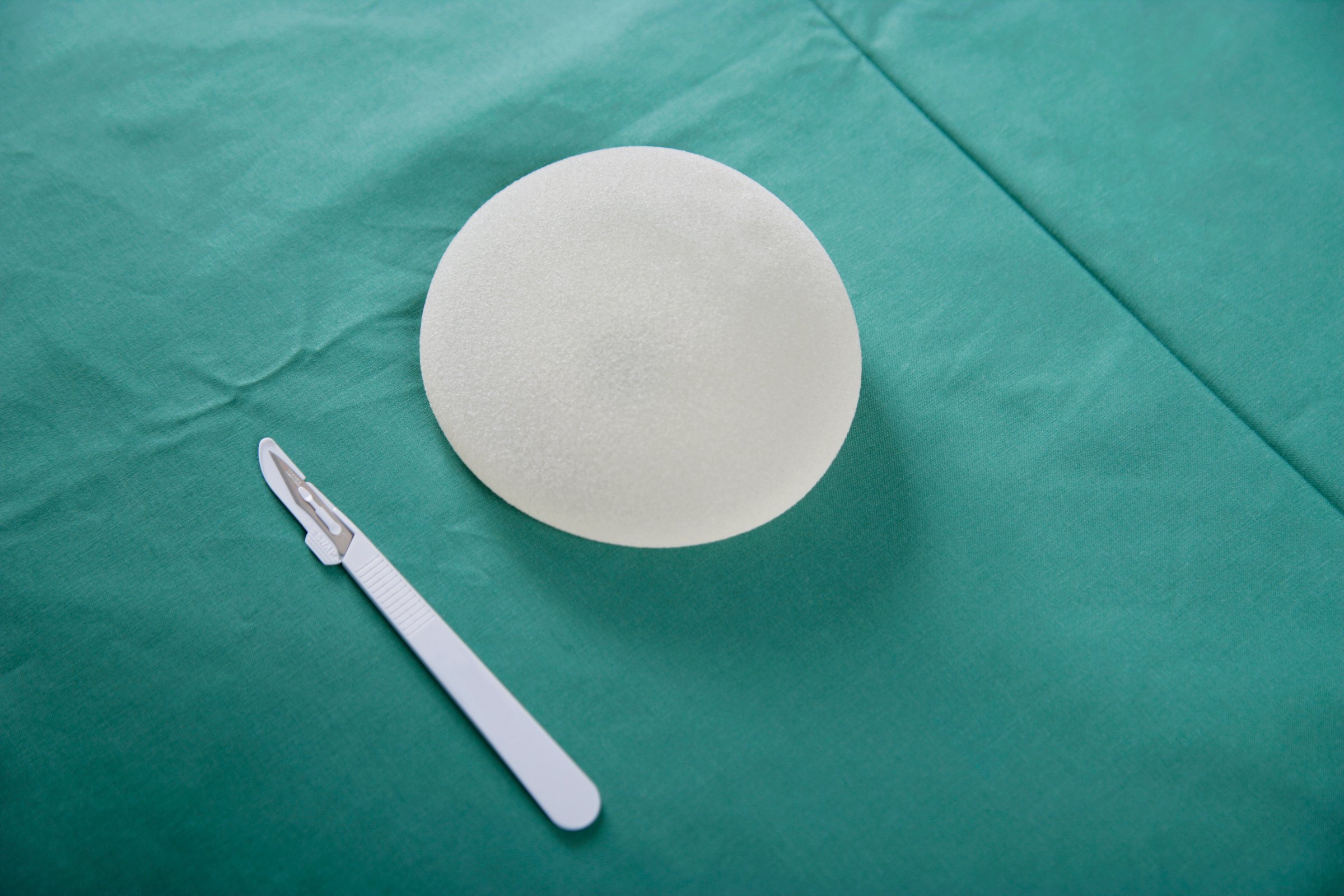
The Food and Drug Administration (FDA) elected not to ban a type of breast implant that been linked to a rare form of cancer, the agency announced Thursday.
The FDA met in March to discuss the link between breast implants — particularly textured implants — and breast implant-associated anaplastic large cell lymphoma (BIA-ALCL), an immune-system cancer that sometimes surfaces in the scar tissue and fluid near a breast implant. The agency has received reports of 660 people who developed BIA-ALCL, and nine of those people died from the disease, the FDA says.
About 300,000 women in the U.S. get breast implants each year, and cancer linked to implants is rare. It’s difficult to calculate the exact risk, the FDA says, but the potential raises questions.
While the FDA determined that there is not enough data to ban the implants, the agency says it will continue to research the issue and work to better inform women and health care providers about potential risks. Here’s what to know about textured implants and BIA-ALCL.
What are textured implants made of?
There are two types of breast implants that are approved in the United States: saline or silicone gel-filled implants. All breast implants have an outer layer that is made of silicone, but they can have different shapes, sizes and textures. They can also vary in thickness.
Why are textured implants used?
One of the most common complications associated with breast implants is called capsular contracture, which is when scar tissue forms around the breast implant, making it hard and tight. It can distort the look of the breasts, and in some cases cause pain for women. Some plastic surgeons feel that a textured implant prevents the buildup of scar tissue. Textured implants tend to be stiffer, and some women who want implants with a more distinct shape prefer them. In 2018, less than 10% of the implants sold in the U.S. were textured, as opposed to smooth, the FDA says.
Why might they have a higher risk for cancer?
Researchers are still determining why textured implants may be associated with cancer. The Plastic Surgery Foundation has an ongoing registry with the FDA where doctors can report suspected cases of ALCL from breast implants in order to learn more.
Some research has suggested that textured implants are more likely than smooth implants to develop a bacterial coating, which may increase the risk of infection, cancer or implant failure. Other experts believe textured implants’ rough surface may irritate surrounding tissue, potentially raising cancer risk, CBS News reports. The FDA says more research is needed to understand what’s at play.
And while textured implants are more strongly linked to BIA-ALCL, the FDA cautions that cases have also surfaced in women who got smooth implants.
What else should I know?
Symptoms for breast implant-associated ALCL are persistent swelling or pain around the implant. The symptoms can appear years after the initial implant procedure. The cancer is rare, but women should also be aware of the fact that the FDA does not consider breast implants to be procedures that last a lifetime, meaning “everyone with breast implants will face additional surgeries — but no one can tell them when,” according to the agency.
The FDA warns that the longer a woman has breast implants, the higher her chance for complications and further surgeries, adding that few women will keep their original implants for 20 to 30 years.
It’s usually possible to treat BIA-ALCL if it’s caught early, according to the Mayo Clinic. Treatment typically involves surgically removing the implant and nearby cancer.
More Must-Reads From TIME
- The 100 Most Influential People of 2024
- The Revolution of Yulia Navalnaya
- 6 Compliments That Land Every Time
- What's the Deal With the Bitcoin Halving?
- If You're Dating Right Now , You're Brave: Column
- The AI That Could Heal a Divided Internet
- Fallout Is a Brilliant Model for the Future of Video Game Adaptations
- Want Weekly Recs on What to Watch, Read, and More? Sign Up for Worth Your Time
Write to Jamie Ducharme at jamie.ducharme@time.com